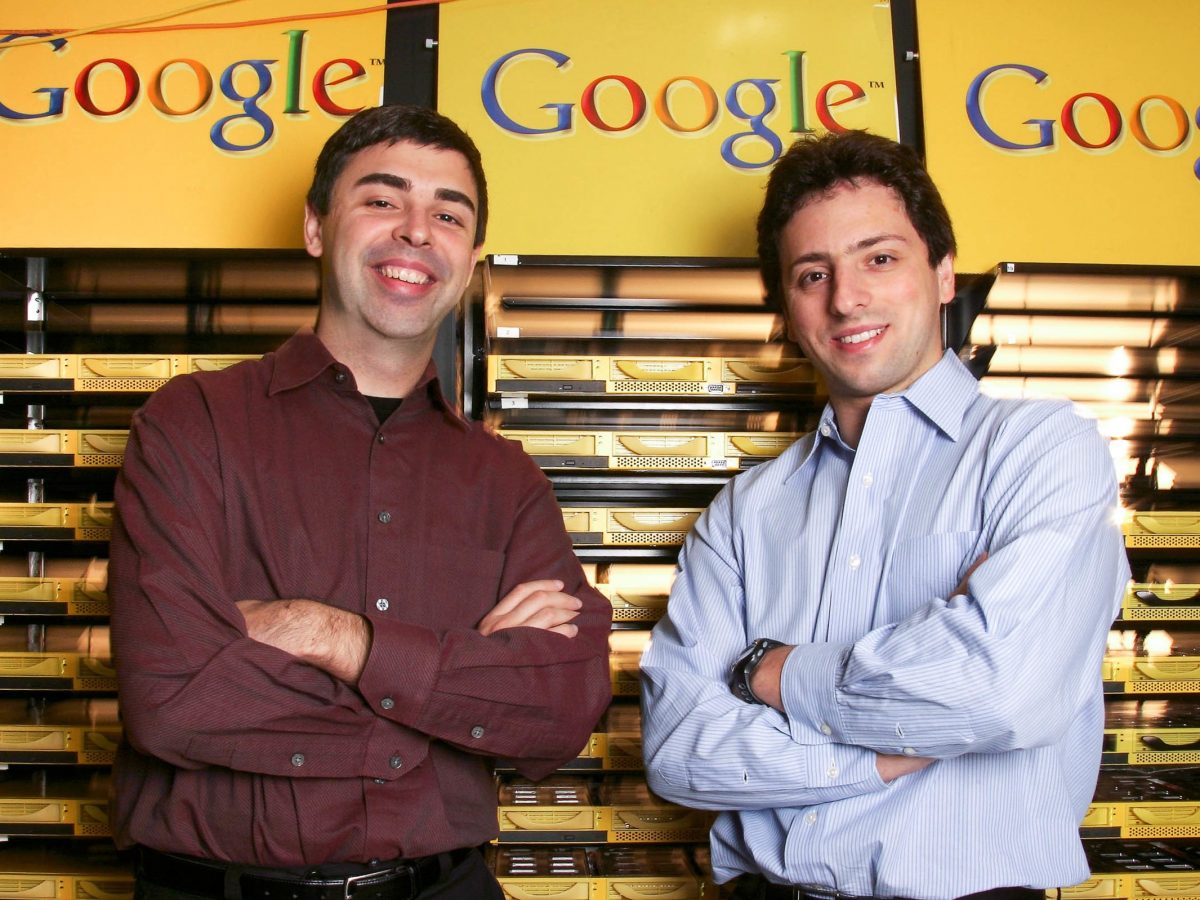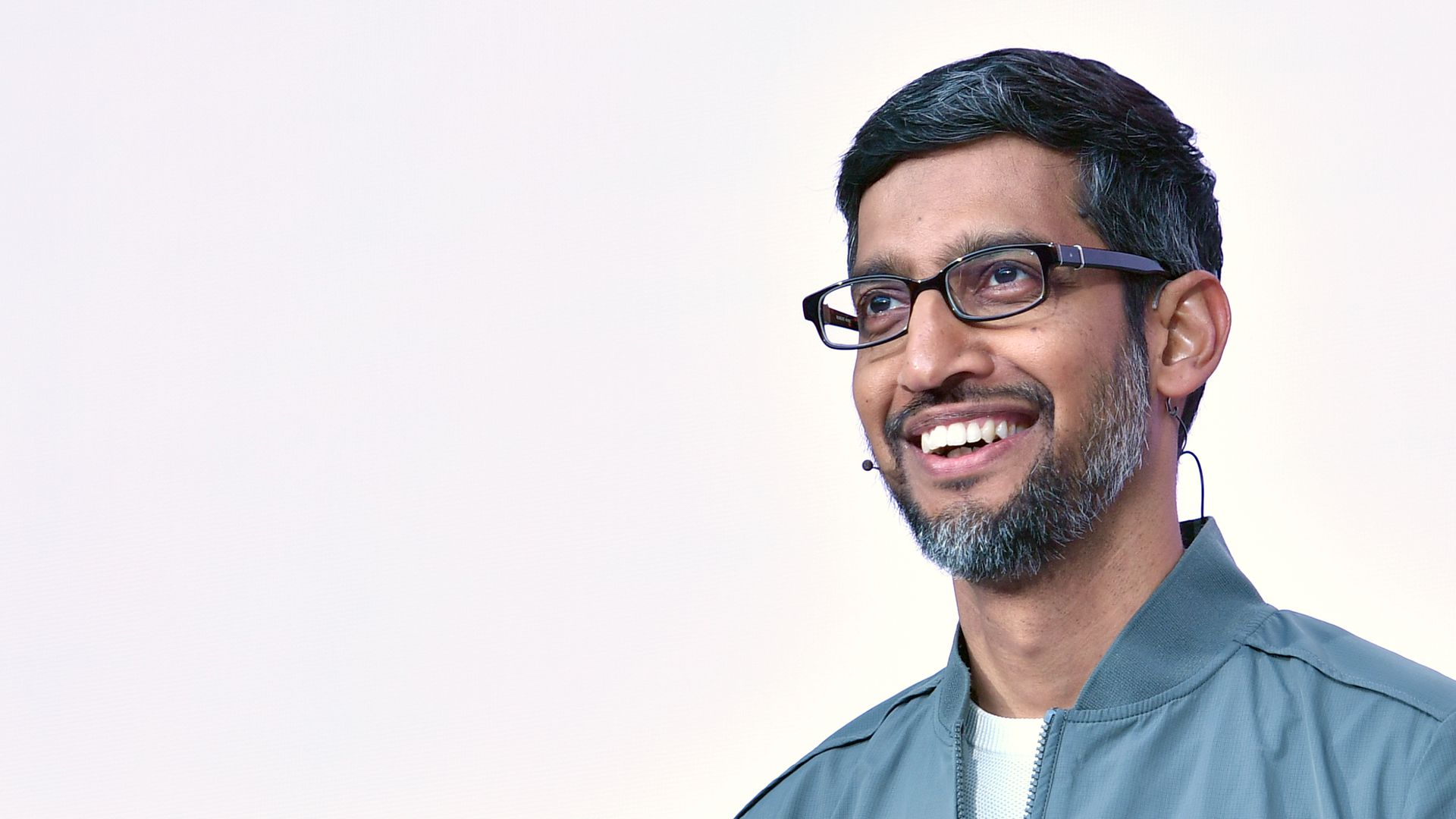Larry Page and Sergey Brin, both Google co-founders are stepping down from their roles at the helm of parent firm Alphabet and handing the reins to current Google CEO Sundar Pichai, the company said Tuesday, December 3, 2019.
Pichai will take over from Page as CEO of the holding firm, a Silicon Valley titan that includes Google as well as units focused on “other bets” in areas including self-driving cars and life sciences.
Page and Brin, who is currently Alphabet president, “will continue their involvement as co-founders, shareholders and members of Alphabet’s board of directors,” the company said.

In a letter to employees, the two wrote: “We’ve never been ones to hold on to management roles when we think there’s a better way to run the company.”
They added that 46-year-old Pichai “brings humility and a deep passion for technology to our users, partners and our employees every day” and that there is “no better person to lead Google and Alphabet into the future.”
Alphabet was formed in 2015, giving separate identities to Google and newer projects such as autonomous car unit Waymo and smart cities group Sidewalk Labs.
Pichai, born in India, takes the helm at a time when Page and Brin, both 46, have been noticeably absent, and the company faces a torrent of controversies relating to its dominant position in the tech world.
“Google is the vast, vast majority of Alphabet in terms of revenues, profit and everything else, so why not put the guy doing a great job running all of that in charge of (the) whole company?” said Bob O’Donnell, chief analyst at Technalysis Research.
Investigations and controversies
Pichai is likely to fill a void at the company as it faces antitrust investigations and controversies over privacy and data practices in the United States and elsewhere.
The company has also faced allegations of failing to adequately address sexual harassment in the workplace and of straying from the ideals espoused by the founders in the company’s early code of conduct, which included the motto “don’t be evil.”
“He’s a technologist, but he’s been a steady hand for the last few years and has proven his ability to conduct business at the highest level,” said Roger Kay, an analyst at Endpoint Technologies Associates.
Kay added the move “ratifies that the (Google) founders have stepped aside almost entirely.”
Pichai will have a new role as he faces up to claims from President Donald Trump of “bias” in internet search results, and the latest charge from Amnesty International that Alphabet’s business model leads to human rights violations by enabling surveillance of users.
Earlier this year, Pichai met with Trump and appeared to ease the US president’s concerns that Google was unwilling to help the US military and was boosting China and its military.
Trump tweeted after the March meeting that Pichai was “totally committed” to US security.
Last December, Pichai kept calm while testifying in Congress as he parried US lawmakers over complaints of political bias and intrusive data collection.
“We build our products in a neutral way,” Pichai said in one exchange with a lawmaker, and added later: “We approach our work without any political bias.”
Chennai to Silicon Valley
Born to humble beginnings in the southern city of Chennai, Pichai studied engineering at the Indian Institute of Technology, IIT, in Kharagpur before heading to the United States to further his studies and career.
After leaving India, he attended Stanford University and later studied at the Wharton School at the University of Pennsylvania.
In recent years, Alphabet has become one of the world’s most valuable companies, with a 2018 profit of some $30 billion on revenue of $136.8 billion.
The 2015 reorganization appeared aimed at installing the startup mentality for new ventures, described by Google as “moonshots.”
These ventures, including the life sciences group Verily and the biotech operation Calico, have been losing money.
Kay said the “other bets” have been struggling because even though they have the financial backing from Google’s profits, “they don’t have the do-or-die element” of other startups.
Read more at USATODAY







